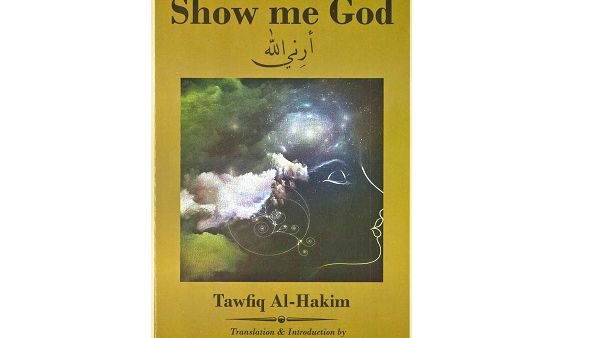Georgetown Faculty Member Unveils First-Of-Its-Kind Translation of Stories by Tawfiq Al-Hakim

A short story collection by pioneering playwright Tawfiq al-Hakim was recently translated into English in full for the first time by Abdul Rahman Chamseddine, a Georgetown University in Qatar (GU-Q) faculty member and Arabic language instructor at the University.
The collection is titled Show Me God (Arini-Allah) and includes twenty short stories that combine a curious, elegant, and mysterious exposition of the human psyche and its philosophical, symbolic, and intriguing issues and inclinations. The stories are examples of Al-Hakim’s ability to unleash his imagination to bring the reader to awareness and certainty.
Chamseddine has employed his linguistic abilities to convey the atmosphere of these stories as well as the mysteries, charm, and symbolism they contain to English-speaking readers through a smooth and accurate translation. The translator chose words that reflect the depth of the meanings Al-Hakim wished to convey to the reader's mind and imagination. This allows English readers to enjoy these short stories as much as Arabic readers have done since the publication of the series of stories in 1953.
In his translation of the work, Chamseddine, who specializes in Arabic idioms at the early Islamic period, was keen to preserve the style of Al-Hakim as a cynical, yet profound storyteller, utilizing symbols to bring the reader to a conclusion touching the truth characterized within the story.
Through several of these short stories are dominated by an ideological dimension, Al-Hakim excels in blending spiritual concepts with the materialistic elements of life and the tendencies of the human soul by presenting plain facts, bringing the reader to his destination in a simple and direct approach.
“The reason for my selection lies not only in the fact that they have not been translated previously, except one story, but also because Al-Hakim excelled in merging the European school of thought and the Arab Islamic one to write these short stories in the middle of the last century,” said Chamseddine. “This made it easier for any reader with limited intellect to comprehend and grasp the message conveyed, deeply touching the human conscience directly. These religious philosophical ideas were accepted by Arab - Muslim communities seventy years ago, yet there are increasing doubts about the possibility of accepting them today.”
Al-Hakim is considered one of the most prominent writers of theater, and one of the most respected thinkers, of the twentieth century. He has been called the father of the theater in Egypt and the Arab world and one of the founders of the art of the play, novel, and story in modern Arabic literature.
Background Information
Georgetown University in Qatar
Established in 1789 in Washington, DC, Georgetown University is one of the world’s leading academic and research institutions. Georgetown University in Qatar (GU-Q), founded in 2005 in partnership with Qatar Foundation, seeks to build upon the world-class reputation of the university through education, research, and service. Inspired by the university’s mission of promoting intellectual, ethical, and spiritual understanding, GU-Q aims to advance knowledge and provide students and the community with a holistic educational experience that produces global citizens committed to the service of humankind.
Located in Doha’s Education City, GU-Q offers the same internationally recognized Bachelor of Science in Foreign Service degree as Georgetown’s Capitol Campus in Washington, DC. This unique, interdisciplinary program prepares students to tackle the most important and pressing global issues by helping them develop critical thinking, analytic, and communication skills within an international context. GU-Q alumni work in leading local and international organizations across industries ranging from finance to energy, education, and media. The Qatar campus also serves as a residency and delivery location for the Executive Master’s in Emergency and Disaster Management along with the Executive Master’s in Leadership.






